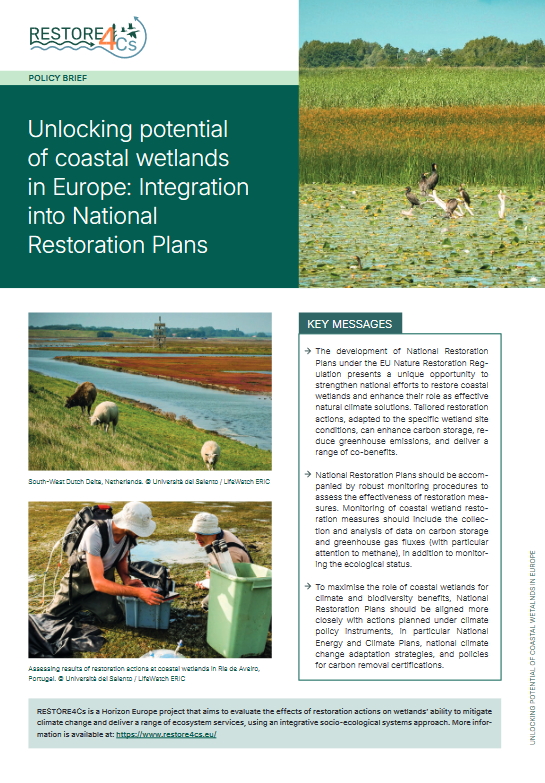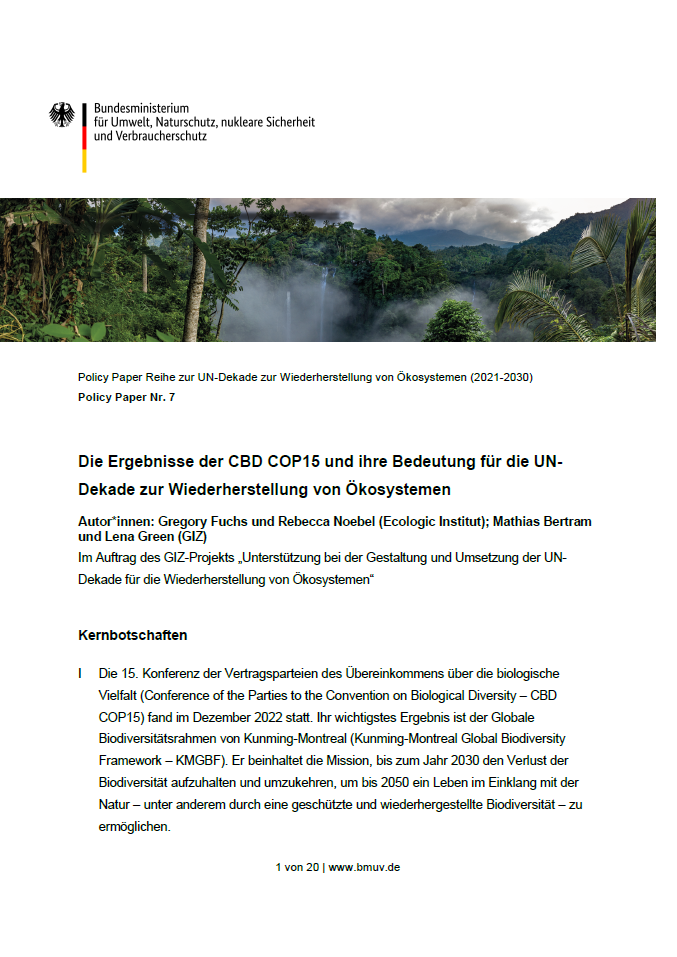Enhancing Synergies in Alpine Nature Restoration Planning
Online Workshop Results
- Publication
- Citation
Spantzel, Teresa; McKenna Davis; Dr. Benjamin Kupilas 2025: Enhancing Synergies in Alpine Nature Restoration Planning. Online Workshop Results. Ecologic Institute: Berlin.
This report summarizes the outcomes of the online workshop held on 4 September 2025. The workshop was organized by the German Federal Agency for Nature Conservation (BfN) on behalf of the Alpine Biodiversity Board (ABB) of the Alpine Convention and implemented and moderated by the Ecologic Institute. The discussion focused on how cross-border cooperation can strengthen the implementation of the EU Nature Restoration Regulation (NRR) in the Alpine region. The workshop is closely linked to the Ecologic Institute’s ongoing work in supporting the national implementation of the EU’s nature restoration targets.
Joint strategies for nature restoration in the Alpine region
Under the EU Nature Restoration Regulation, Member States are required to submit their National Restoration Plans (NRPs) by September 2026, which must also include a section on cross-border synergies. Given the ecological interconnectedness and particular vulnerability of the Alpine region to climate change and land-use pressures, the report highlights the importance of a coordinated, transnational approach. It provides technical guidance and practical entry points for aligning national measures more effectively – bringing together both EU and non-EU Alpine countries.
Key results and focus areas
The report summarises how representatives from eight Alpine countries and the European Commission developed a shared Alpine perspective on restoration and identified transboundary areas for joint action.
Key outcomes include:
- Shared Alpine perspective: Alignment of a joint draft text for field 4.2.11(a) of the National Restoration Plan (NRP). The discussion focused on harmonizing regional and national targets, strengthening existing cooperation mechanisms, addressing climate impacts, and highlighting priority habitats such as peatlands, forests, grasslands, and freshwater ecosystems.
- Priority transboundary areas: Identification of key cross-border ecosystems such as Lake Constance, Lake Geneva, and Lake Maggiore, as well as the Po, Drava, Rhine, and Ticino river systems, complemented by wetlands and Alpine pastures.
- Building on existing cooperation frameworks: Recognition of established programmes such as Interreg Alpine Space and LIFE projects as foundations for transnational restoration initiatives.
- Future opportunities: Recommendations to scale up peatland restoration, enhance ecological connectivity, strengthen shared basin governance, and foster exchange on monitoring and data interoperability. The engagement of local actors – including farmers, protected area managers, and municipalities – was highlighted as essential for successful implementation.
Contributing to a resilient Alpine landscape
The workshop summary illustrates the added value of cross-border coordination for achieving an ecologically coherent and resilient Alpine landscape. The consolidated draft text developed during the workshop serves as a reference document for the National Restoration Plans of both EU Member States and non-EU Alpine countries. Furthermore, the report emphasises the need to continue the dialogue initiated under the leadership of the Alpine Biodiversity Board, and to actively integrate the workshop’s results into national planning processes as well as into broader Alpine and international biodiversity initiatives.






